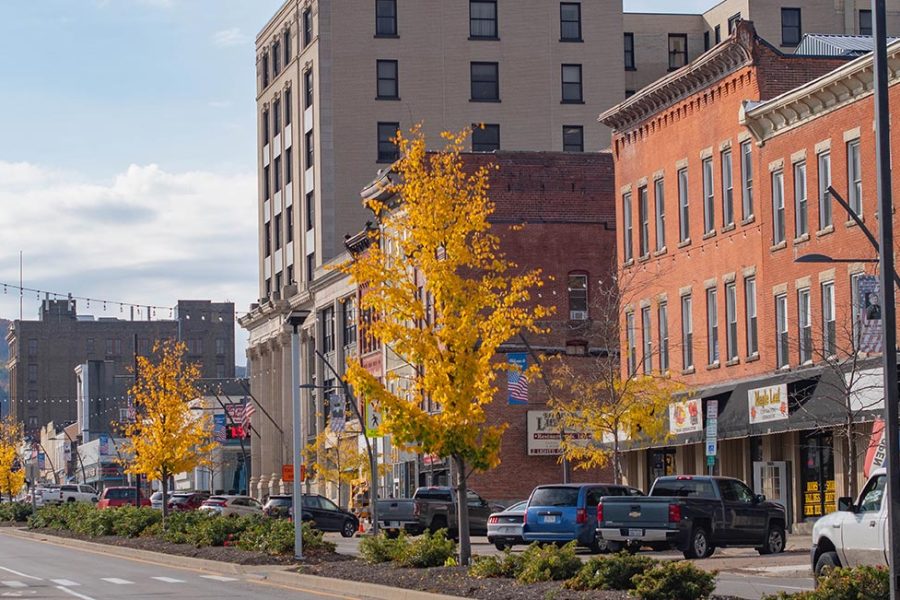- Navigator
- Business Retention and Expansion (BRE)
- Strategic Planning

Economic development is generally defined as programs, policies, or activities that seek to improve the economic well-being and quality of life of a community. What “economic development” means to you personally or your organization will depend on the community you live in. Each community has its own opportunities, challenges, and priorities.
However, one thing all communities have in common is the fact that nonprofit organizations — such as churches, food banks, housing and homelessness resource programs, meal delivery programs for seniors, and job training and placement programs for those with disabilities — play a big part in improving the economic well-being of residents.
According to The Institute for Policy Studies at Johns Hopkins University:
“Nonprofit organizations, long known for their contributions as providers of assistance to those in need, have increasingly assumed an additional role in recent years as promoters of development, as vehicles for attacking the root causes of poverty and distress and encouraging individual and group autonomy and self-support.”
Since the end of the Civil War, US churches of all denominations have contributed to the economic development of communities and continue to be a cornerstone today. Historically, churches played a significant role in areas like education, healthcare, childcare, and elder care and provided support for low-income and homeless individuals and families in a variety of ways.
Today, it can be argued that churches are businesses. In addition to the community services mentioned above, they provide paid, non-volunteer jobs and generate revenue through tithing/donations, renting facilities when not in use, and hosting ticketed special events. Churches are also often the place where community meetings are held to discuss social and economic concerns and initiatives.
Many churches operate separate charitable nonprofit organizations with specific missions, such as poverty and homelessness reduction, housing development and resources, substance abuse recovery, and more. Some also operate for-profit businesses to help fund operations and charitable work.
With roots firmly planted in the nonprofit and for-profit worlds and with missions that often directly relate to improved quality of life and supporting those most in need, churches can be important partners in many community and economic development initiatives. Here are some examples of the economic development services churches can (and do) provide:
- Job training and placement services for the unemployed or under-employed
- Childcare services and before and after-school programs
- Private primary and secondary schools, including some that offer career and technical education (CTE) programs
- Resources for food banks and programs that offer hot meals or deliver meals to the elderly and other housebound people
- Financial assistance for things like rent, utility bills, and more for those in need
- Clothing and back-to-school supply drives
- Serving as a bridge between local government agencies and the community by sharing information with congregants, hosting and facilitating community meetings, and obtaining and relaying community feedback
- Finding other innovative ways to improve the community around them
- Supporting entrepreneurship within the congregation through small business workshops and incubators
- Developing affordable housing on church-owned property
An economic impact study completed in 2022 by Partners for Sacred Places and the UNC Charlotte Urban Institute on the economic impact of 87 rural United Methodist churches in North Carolina found that, on average, the churches were responsible for more than $735,000 in economic benefits to their local communities each year. The study examined six impact areas:
- Community-serving programs
- Outdoor recreation space
- Direct spending
- Education and childcare
- Drawing visitors to the area for events
- Individual impact (one-on-one guidance and support)
In New York City, the Greater AME Allen Cathedral in Queens has become a housing and business developer. It built a 400-unit affordable housing facility for seniors and then bought and rehabilitated 15 boarded-up storefronts that are now home to a variety of locally owned businesses. It has also hosted affordable housing workshops for residents at risk of foreclosure or rising rent prices.
In Virginia, the Richmond Christian Center worked with the community to enhance the quality of life within the area by renovating an old church and using it as a second facility for additional ministries that included youth programs and after-school programs, turning an old warehouse into a gymnasium, and another building into a school. I attended this church at the time and saw first-hand how these changes revitalized the area and improved the community.
Despite being one of this country’s longest-standing community-building institutions, churches may often be overlooked by economic developers as resources and partners.
But when you reflect on the definition of economic development, churches check several of the boxes, and many have been busy doing economic development work in their communities for decades.
Economic developers can create relationships with their local churches the same way they do with existing businesses, as part of a comprehensive business retention and expansion (BRE) program.
Church leadership can also be important partners in community outreach and engagement efforts, providing a direct conduit to potentially hard-to-engage populations, like recent immigrants, people experiencing homelessness, and other minority groups.
Reach out to your local churches today — “the doors of the church are open.”
Are you looking for help developing or improving your BRE program or expanding your community outreach efforts around important economic development programs or initiatives? Camoin Associates can help. Contact us to learn more.





